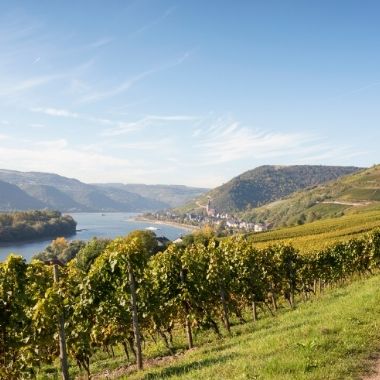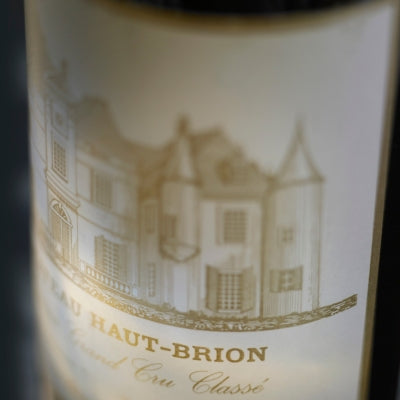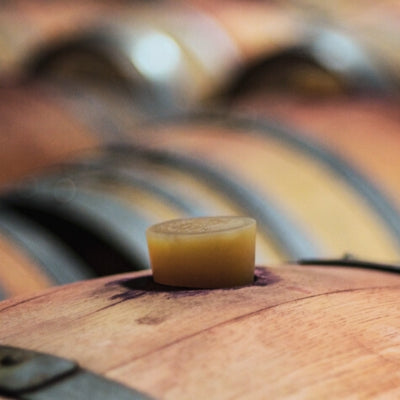
Rheingau, the finest German Wine Region?
From popular styles to wine to classification systems and from vinous catchphrases to vinous studies, the German wine region of the Rheingau has always been a leader. Nowadays, the Mosel may be the name on everyone’s lips when it comes to German wine and, certainly, they are gems. But for a Riesling with all the velocity of the Mosel coupled with a more voluptuous body and an equally rich history, we look to the Rheingau.
What is responsible for the area’s ripe and ready Riesling? It is due to several factors, the Rhine river being a major player, as one may deduce from the region’s name. It’s here that the Rhine changes course, bending at the foot of the Taunus Mountains to flow in an east-to-west direction. The mountains shelter the region and the vineyards - planted up steep hills on the right bank – benefit from this. The Taunus affords the vines both protection from cruel weather, as well as a southerly aspect, which provides more concentrated sunlight. In addition, the light reflected from the river creates a warmer atmosphere than in regions like the Mosel. The result of this is grapes having a slightly higher sugar content, meaning fuller and riper styles of wine.
Throughout history the Rheingau has been a ringleader for all things we associate with German wine, starting with Riesling. Schloss Johannisberg, at the time a Benedictine abbey in the region, was the first to plant Riesling in any German wine region. Well, they were the first to make a record of the Riesling plantings at any rate. But in the year of 1435 they were ahead of the curve. They were innovators, being the first in Germany to record making botrytized wine, noting one from 1775 we now believe was a spätlese.
On a less serious note, it is the Rheingau’s town of Hochheim from which the British word “Hock” came from. At first it was just in reference to the town but gradually became an all-encompassing term for German wine.
The region continues to be an innovator and explorer, even centuries later. The Geisenheim University is located there, and is known for its work developing crossings of grapes such as Muller-Thurgau, a crossing of Riesling and Madeleine Royale. To boot, the German classification system was born in the Rheingau, starting with the Charta, which led to today’s Verband Deutscher Prädikatsweingüter, aka the VDP. As modern tastes have turned to drier and drier styles of wine, the VDP’s classification of ‘Grosses Gewachs’ - signifying a dry wine from the equivalent of a Grand Cru vineyard - has been one of the system’s calling cards.
Some of the best known producers are cherished for their ability to balance the region’s suppleness with brightness and acidity. Josef Leitz is known for wines that vibrate with energy - even when not dry they have a cut and polish that is at once exacting and exuberant. Josef Spreitzer marries plush richness with freshness. Robert Weil’s wines, particularly when from the Kiedricher Grafenberg vineyard, are the dry Rieslings that maintain weight while having the zip of acid to keep them vibrant.
It’s not all Riesling though. Spätburgunder is grown in the Rheingau too, particularly in August Kesseler's Assmanshausen Höllenberg vineyard, as well as August Kesseler’s.
If you're feeling adventurous, why not explore the wines of the Rheingau some more? For as storied as its history is, it will be interesting to see what the region's next chapter is.



